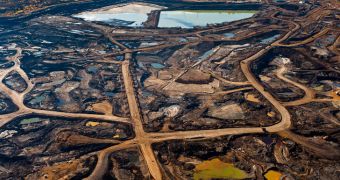It would appear that, as President Obama is getting ready to deliver his verdict on the proposed Keystone XL pipeline, folks in the United States are growing restless. Thus, in late March, members of South Dakota's Rosebud Sioux tribe established an anti-Keystone XL prayer camp close to the city of Mission.
Besides, recent news on the topic says that a green group comprising some 300,000 members is now asking that Barack Obama reject the Keystone XL pipeline on the grounds that the people this project will first and foremost harm are Latinos.
The group is question is dubbed Presente.org, and members describe it as the largest online Latino organization group currently operating in the United States. Presente.org leaders argue that, as shown by a recent survey, climate change and environmental justice are major concerns for group members.
This is because, according to evidence at hand, Latinos are especially vulnerable to the effects of climate change, and also because they are the ones most likely to have their lives turned topsy-turvy by potential spills having to do with Keystone XL, Think Progress reports.
The rationale behind these concerns is as follows: the Keystone XL pipeline is to deliver Canadian tar sands oil to refineries in Texas and Louisiana. The communities established close to these refineries are largely made up of Latinos, which means that Hispanic families are the ones most as risk should this project be given the green light.
“Refineries that would process KXL's tar sands are concentrated in Latino communities in Texas – sickening our children and families with their toxic pollution,” Arturo Carmona, the current executive director of Presente.org, explained in a recent statement.
What's more, Presente.org claims that Latino communities inhabit areas that are bound to be greatly affected by climate change, and the extreme weather manifestations and natural disasters that come with this phenomenon. Hence, should Keystone XL exacerbate climate change, this population will be greatly affected.
As Arturo Carmona put it, “Latino communities in America are concentrated in the areas most affected by climate change— from the drought stricken Southwest to coastal cities like Miami which are most threatened by rising sea levels.”
Presente.org also argues that, due to the fact that fossil fuel infrastructure is largely established in low income communities, the United States' intense use of fossil fuels has disproportionally affected Latinos, i.e. it has made them more vulnerable to asthma, cancer and other health problems linked to environmental pollution.
“Presente.org recently polled their more than 300,000 members across the country and found that environmental justice and climate change were second only to immigration in importance to their members. For these reasons, Presente.org has decided to make environmental justice and the fight against climate change a central priority in the coming year,” the group stresses.

 14 DAY TRIAL //
14 DAY TRIAL //